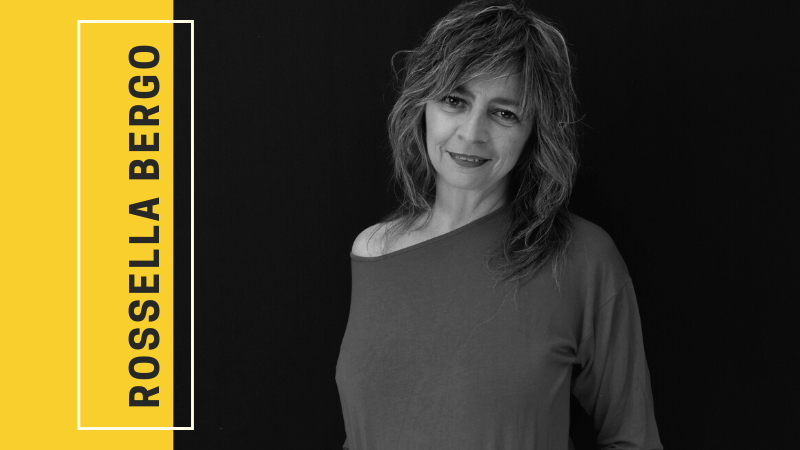Rossella Bergo
Screenwriter and Director
Your project takes a part in our festival. What is your project about?
The short film The Finger and the Moon aims to focus attention on how, even today, prejudices, beliefs rooted in outdated thought patterns, taboos, etc. may affect the life of those who suffer them. Not feeling accepted or understood causes an intense discomfort that can manifest itself in various ways. At the same time, the film project aims to highlight that even where there does not seem to be space for art and creativity, these push to the point of transhipping. There is no way to silence that impetus dictated by the soul of a talent and, even if in a culturally not very fertile environment, creativity flourishes in all its splendor without established codes and imposed rules.
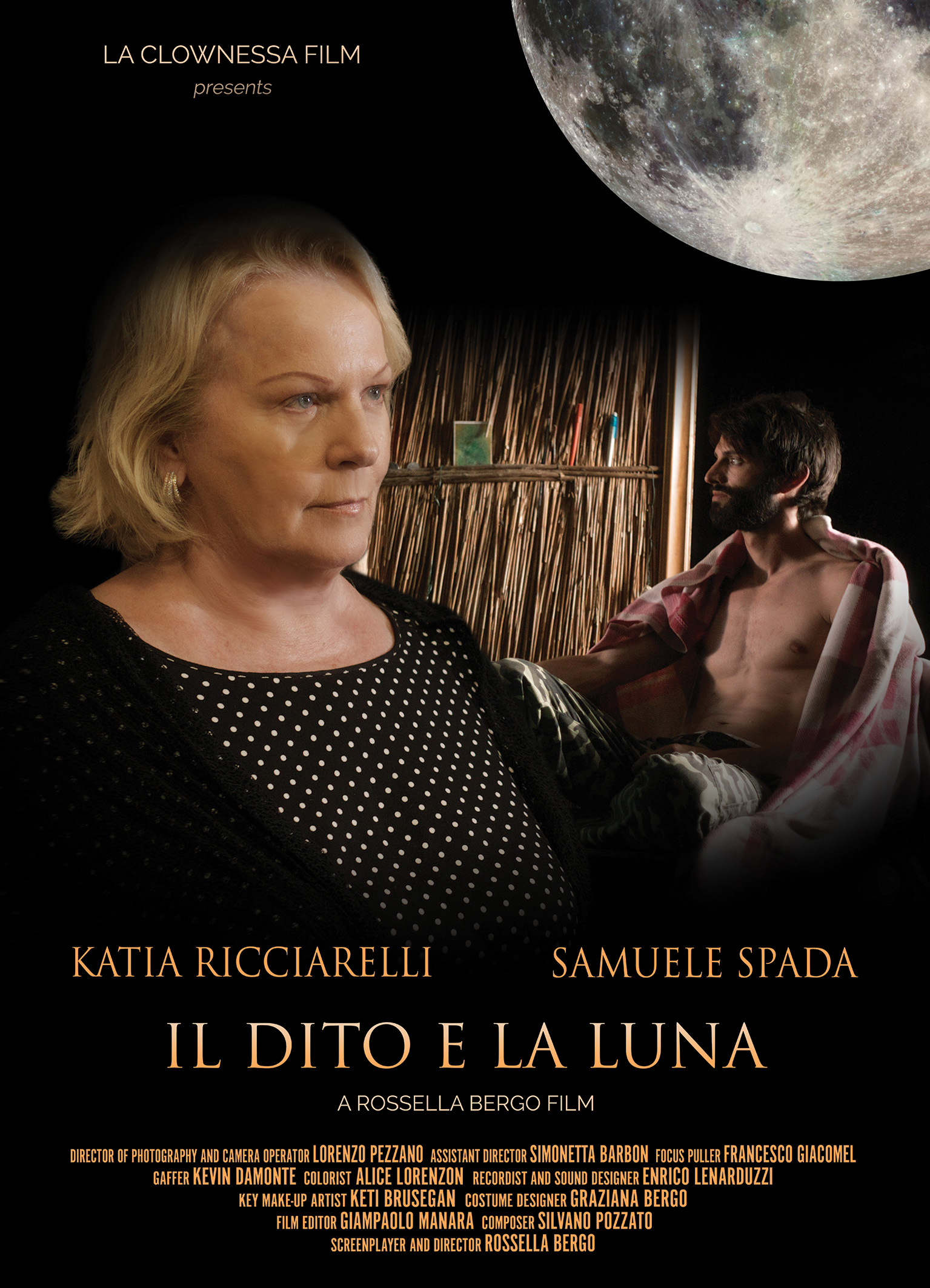
What were your requirements for actors to take a part of your film?
I chose the famous italian soprano Katia Ricciarelli because she perfectly embodied the role of an austere and strict mother, Bianca, locked in her world of old beliefs. I noticed her as an actress in various movies such as The Second Wedding Night by Pupi Avati and I found her sublime.
I met Samuele Spada a few years ago and at the time of the choice of the co-star I thought he was perfect in the role of Thomas, an ambiguous personality and at the same time extremely authentic. For the choice of curvy models, my friend Barbara Braghin helped me because she is herself a curvy model and she also did the fashion coordinator for the choice of the fashion show clothes.
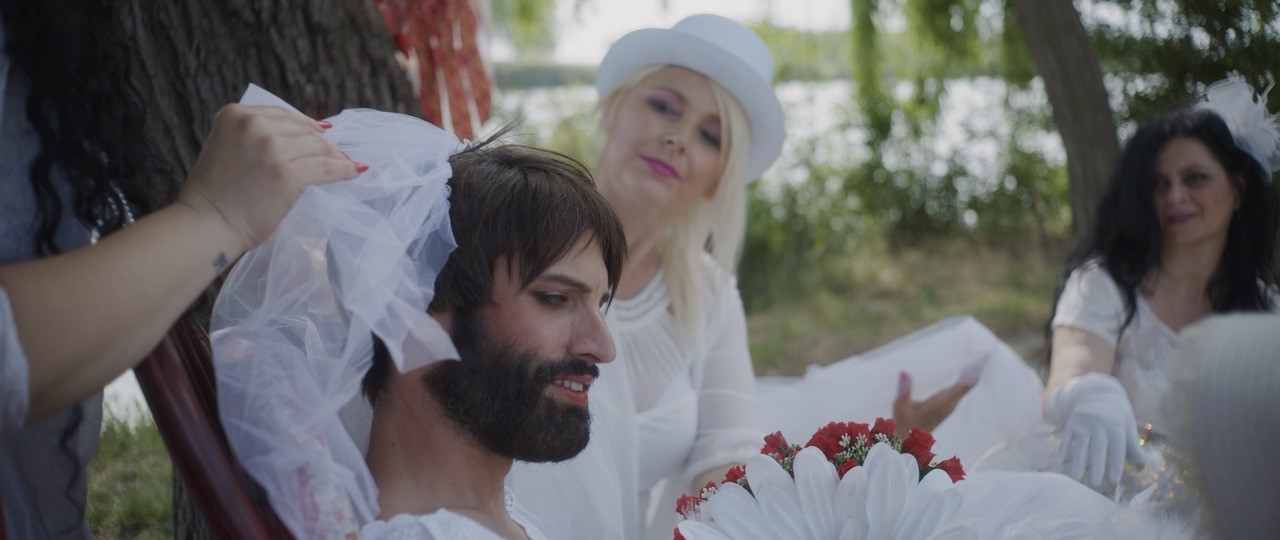
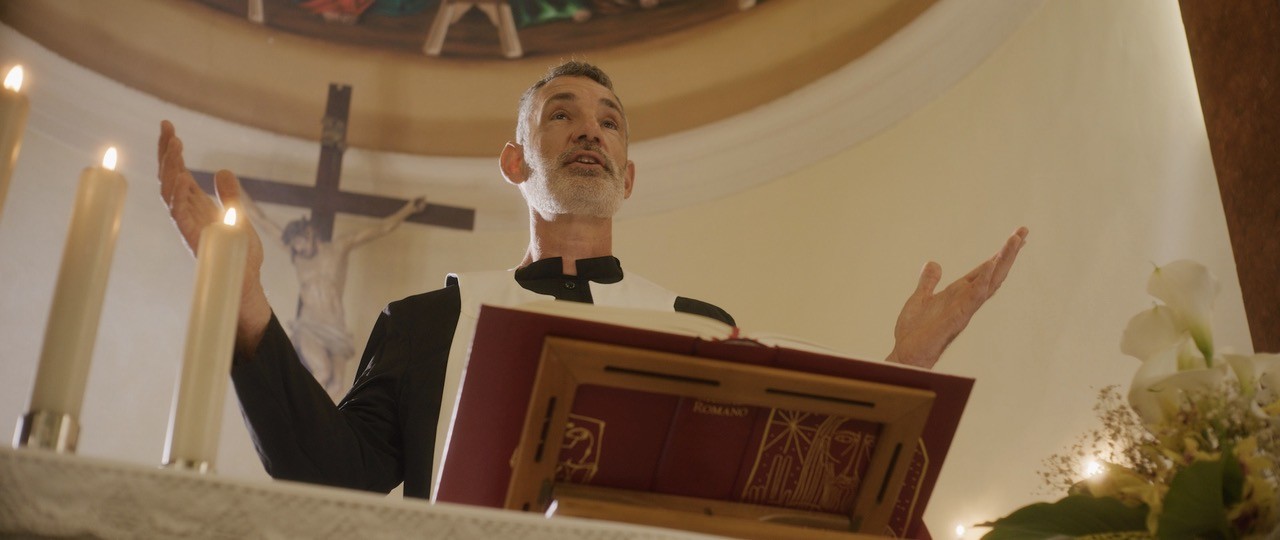
How did you communicate with the cameraman?
The cameraman Lorenzo Pezzano had a dual role, in fact he was also Director of Photography. I started working with him a month before filming so I could explain my vision of the film and plan every step. I wanted to create images that could convey magic and enchantment and through dialogue and sharing ideas with Lorenzo, we were able to understand each other very well. Photography is used not only with aesthetic function but also to emphasize the narrative by transferring messages and emotional states into the viewer. We used a Red camera and in a couple of scenes the Steadicam.
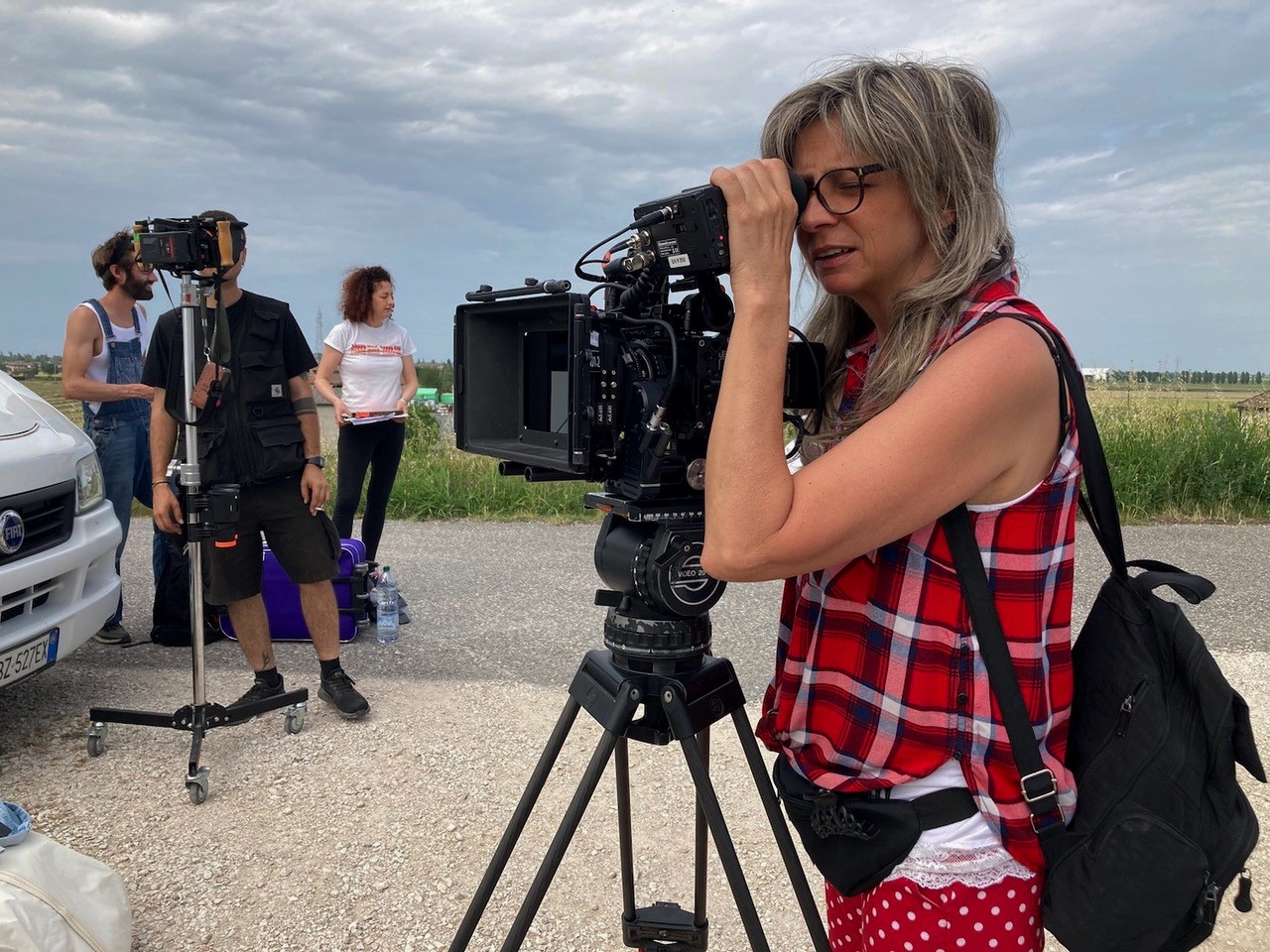
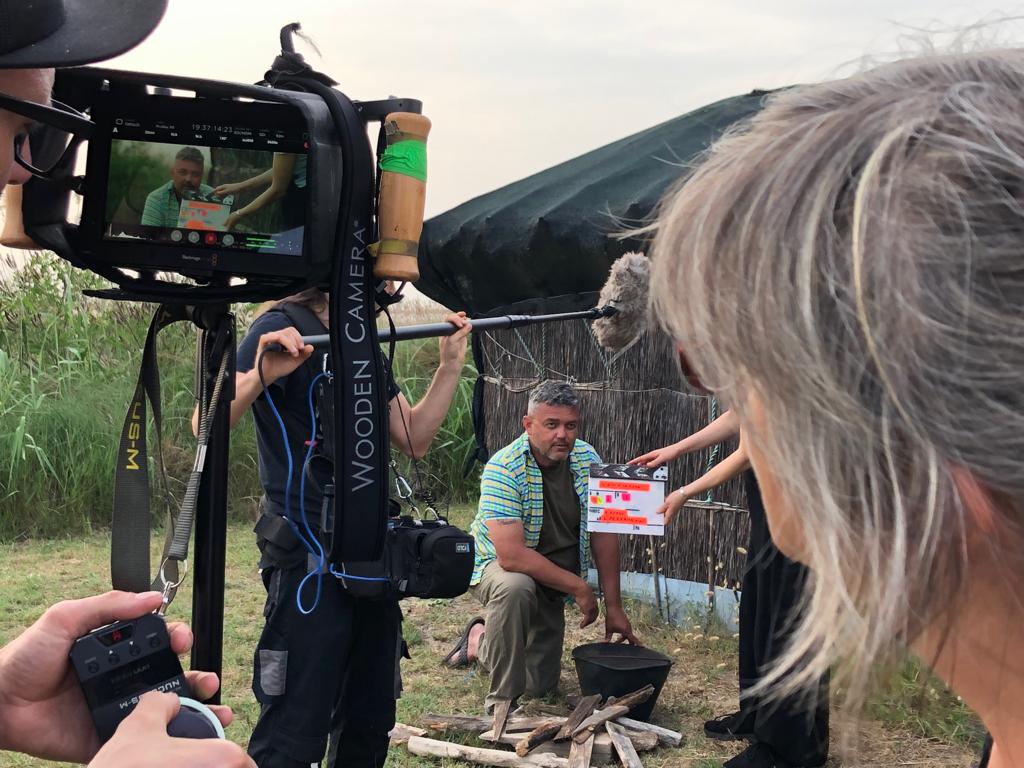
What locations did you choose for your project? And why?
The short film is set in the lands of the Po Delta (Veneto) that well accompany the mood of the film. In fact, the evocative atmospheres of these places help and emphasize the narrative development. This suspended space and the vast expanses resting on the waters of the sea and the river give rise to a double sensation, on the one hand a perception of bewilderment and melancholy and on the other a deep sense of freedom. The location, not only amplifies the transmission of the emotions that live the characters, but it itself becomes the protagonist. Each element contributes to bring out the different dimensions of history, from the earthly and real of everyday life to the mystical-dreamlike-surreal.
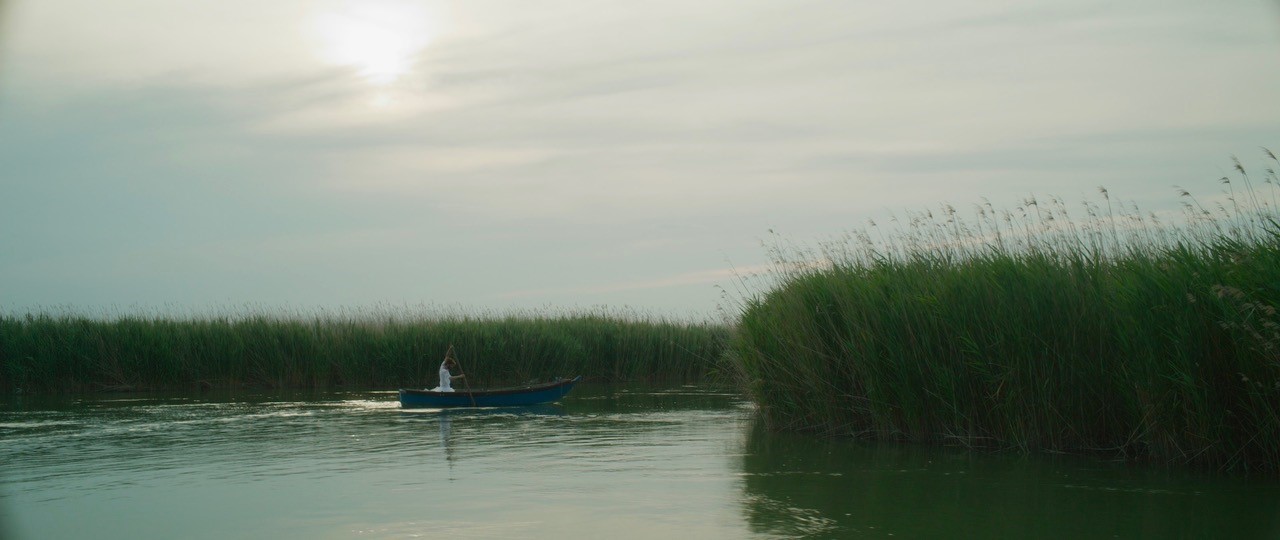
Why should distributors buy your film?
In this age of war, violence, social hardship people need a message of peace, understanding, awareness. In the festivals where The Finger and the Moon was shown, the audience responded with great emotion and participation, struck by the poetry that reached their hearts. I noticed how people need hope, dreams to come true, deep acceptance of diversity, kindness and love. I think it is important to convey themes that inspire a new vision of life to go beyond the sadness of this period that surrounds us and caused by everyday unpleasant events and that have a significant impact on people’s lives. Through cinema we must lead young people to a more humane and less cruel dimension. We must praise love. The originality of the film is also reflected in a different look at the fashion industry, in fact the story speaks not only of the diversity of Thomas but also addresses the theme of curvy models that have in common with Thomas the discomfort of not feeling accepted by society. So, I think distributors should buy my film because of the strong impact it has on people and its ability to change mentality.
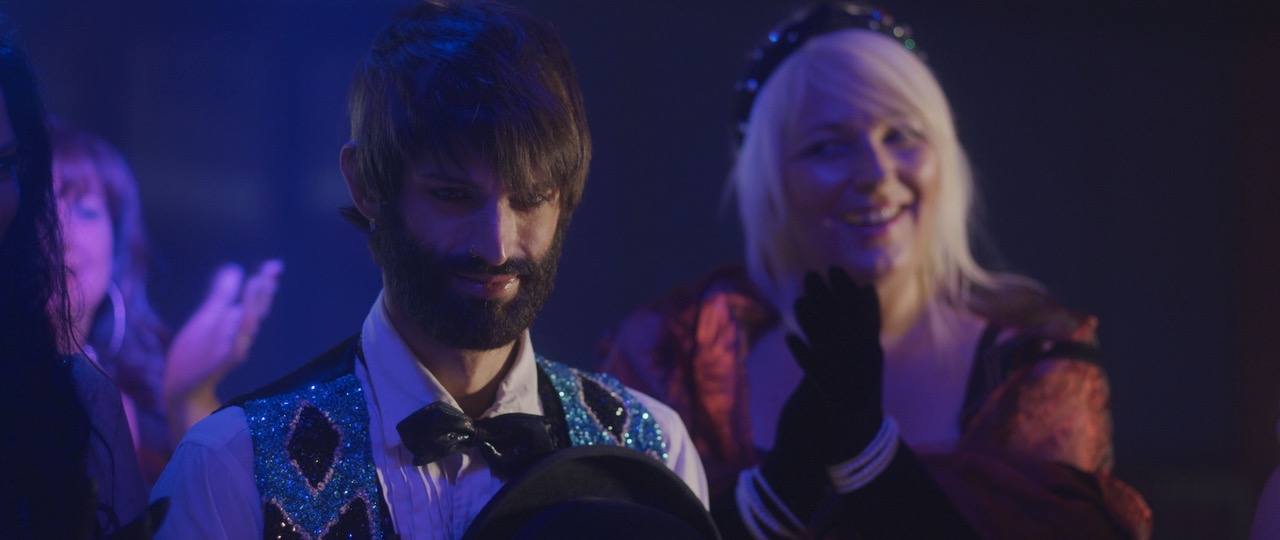
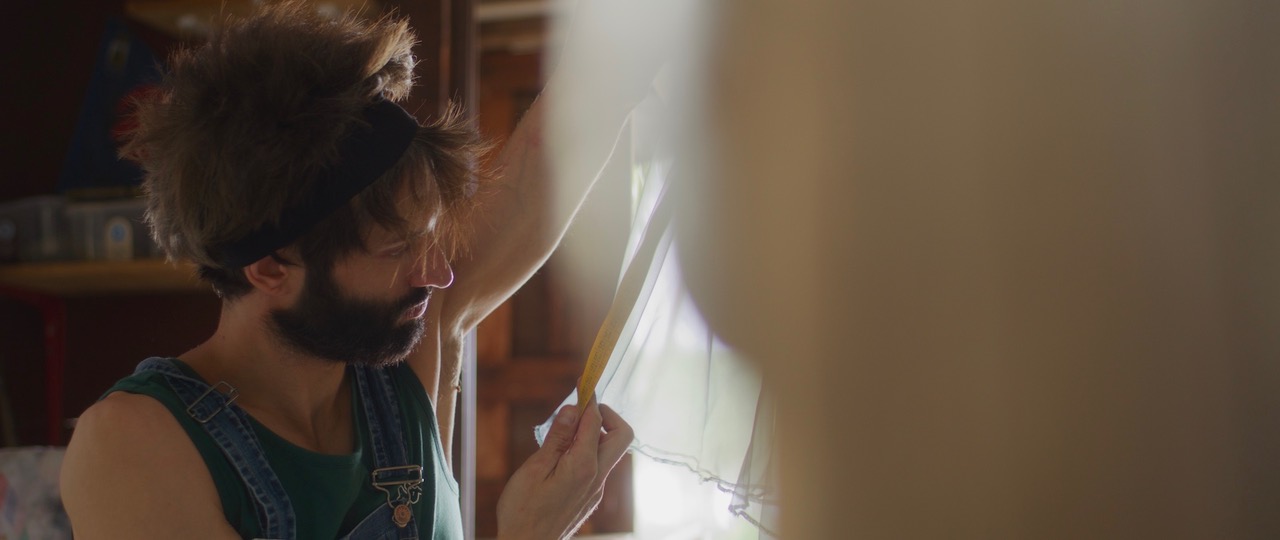
What expression elements did you use in your project? How would you characterize your work?
My film is characterized by a minimal language. In the film is much more important what flows behind the words than the words themselves, I wanted to focus attention on what happens inside the characters. My intention was to create a film that was realistic and at the same time focused on the dream, on the fantasy world and I tried to use all the elements to arouse emotions in the audience.
At what festivals have you had success? Has the film already premiered? If so, where?
To date the short film has received the Grand Prize for Best Short Film at the Il Corto.it International Festival of Rome XV° Edition, then received a Special Mention to the short film and the Award for Best Actress to Katia Ricciarelli at the CortoDino Film Festival. It was selected to Paradise Film Festival and FEEDBACK Female Film Festival 2024.
What motivated you to become a filmmaker?
I love dreams and much less reality, cinema allows me to enter in other dimensions almost as altered states of consciousness. Cinema is a journey into other worlds where the impossible can happen, where what is judged absurd can become reality. Making films is an alchemical process that transforms perceptions, visions, mentalities and leads you to a deep understanding of reality.
Which movies are your favorites? And why?
I love very much Federico Fellini and all his films especially La strada, the docu-film I Clowns, Giulietta degli spiriti, etc. In his films emerges that necessary and authentic madness of human life, which is why I love them. I love the movie Harold and Maude (1971) directed by Hal Ashby, I think the screenplay of Colin Higgins is genial and I find it to be one of the most beautiful films ever. I really appreciate Pedro Almodovar’s films. I love Greenbook, Driving Miss Daisy, Interstellar etc. because these films speak of powerful love. I recently saw the movie Saltburn by Emerlad Fennel and I find it absolutely sublime.
What topics do you like to deal with in your work?
I like to talk about stories of disadvantaged, eccentric, antisocial and extravagant characters. But I also like to address issues related to spirituality, loneliness, the melancholy of living.
What genre do you like to shoot and why?
I like the magic realism, the tragicomic, the non-sense, the bizarre stories and everything that can be told through a humorous style. I think humor is a powerful tool that can transmit messages in a seemingly light but not superficial way. Coming from circus experiences, I worked for many years as a clown in the street but also in hospitals and humanitarian missions such as in Afghanistan, India, Cambodia, Argentina, Brazil, Belarus and I noticed how laughter can break down the walls between people of different cultures, different religions and traditions and bring them closer. My previous shorts are all comedies and silent movies, The finger and the moon is my first dramatic film.
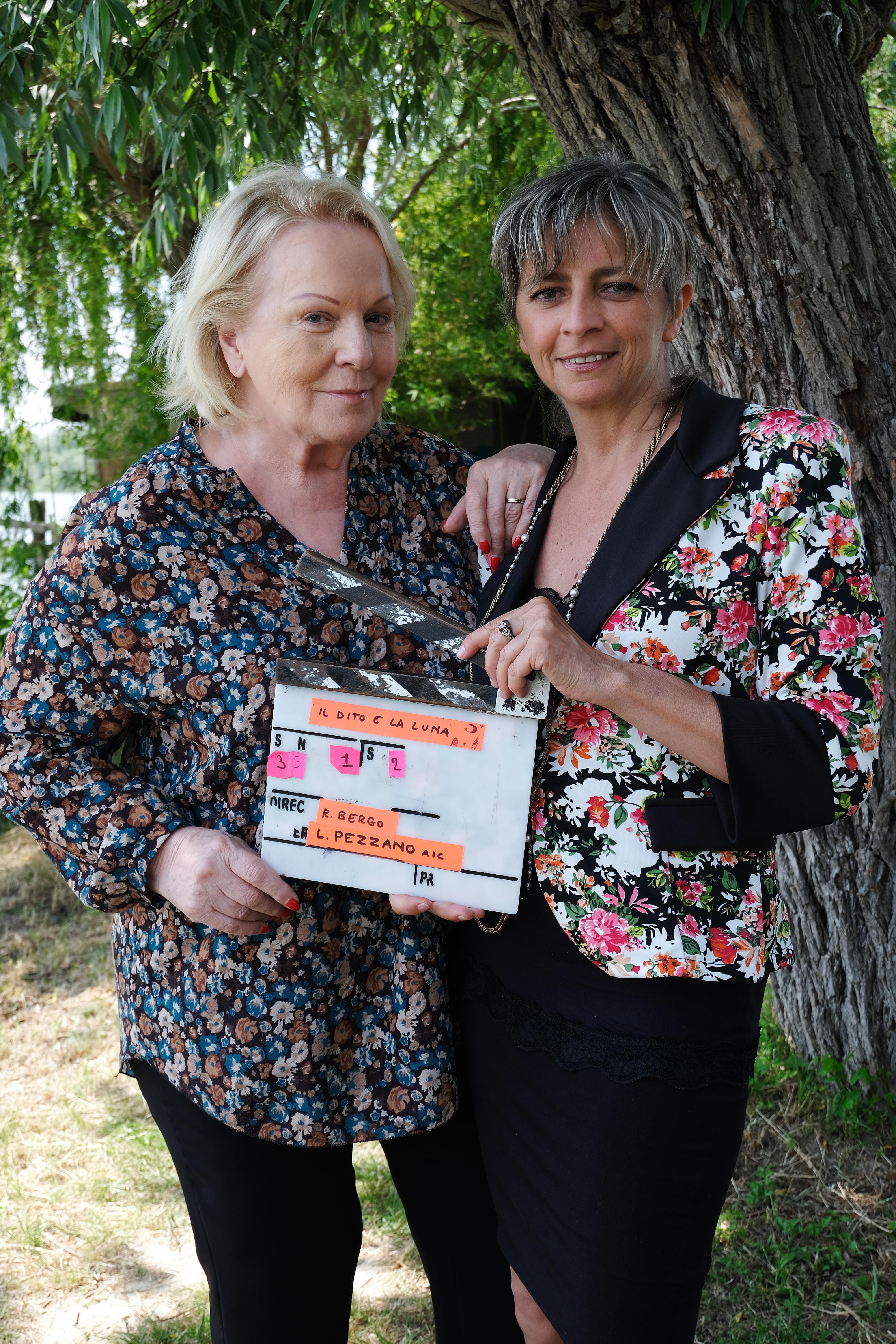
What project would you like to shoot one day, what would it be about?
I wrote two screenplays for feature films, one about disability and the other about the elderly, both with humorous tones.
What do you do if you're not thinking about a movie? What are your hobbies?
I like to read, especially books that inspire and leave me an emotion to develop. I love being with animals, I live with three cats that brighten my days. I think cats are very funny, the best clowns can make me laugh a lot.
What projects do you plan to shoot in the future?
I have several ideas for the realization of a short film and among them, to work on the theme of violence against women, a tragicomedy that brings out a different perspective.
Rossella Bergo was born in the Po Delta - Veneto and lived in Rome for 25 years.
In 2022-23 she wrote and directed Il dito e la luna, a short drama film starring Katia Ricciarelli. The project was realized thanks to the patronage of Ente Parco Delta del Po, the patronage and support of Fondazione Rovigo Cultura and Comune di Porto Tolle of Rovigo.
In 2020, on the occasion of the centenary of Federico Fellini's birth, she made her third short film entitled Il Circo dei Fellini.
In 2019 she collaborated with the Collecting Artisti 7607 of Rome, creating a web-spot Palestra Attoriale with the participation of Elio Germano.
In 2018 she shot her second short film Florindo e Carlotta – La vita segreta delle chiocciole, on the theme of disability, collecting recognition and prizes in many national and international festivals.
In 2016 she wrote and directed her first short film Il Brindisi, presented at the 73rd Venice International Film Festival - at the Veneto Region space - Hotel Excelsior.
She is also an actress and her most important works in cinema are:
Ballo a tre passi (2003) by Salvatore Mereu, Special Mention Luigi De Laurentiis International Critic Award - 60th Venice International Film Festival;
Clown’in Kabul (2002) directed by Enzo Balestrieri and Stefano Moser, presented at the 59th Venice International Film Festival;
Voci (2001) directed by Franco Giraldi;
Jamaica (1998) by Luigi Faccini;
Among the most important works for TV:
R.I.S. Delitti Imperfetti (2005) protagonist of the episode. Season 1 (episode 8 “Night Beauty”) directed by Alexis Sweet;
Dio vede e provvede (1988) directed by Enrico Oldoini - First season.
She worked in theater and various street festivals as a clown. She worked on clowning and comedy therapy in italian hospitals and in other countries around the world such as Afghanistan, India, Cambodia, Belarus, Argentina, Norway, Brazil, sometimes alongside Hunter Patch Adams.
She wrote some books: Ricettario vegano e gluten free (2019 - Ed. Sabinae); Legge d’attrazione per donne (2014 – Ed. Bruno); Le Carte della Clownessa (2013 - Ed. La Clownessa Associazione); La Clownessa il sorriso intimo della donna (2010 - Ed. Venexia); Diario di una clownessa, Nini (2007 – Ed. Aletti).
In 2022-23 she wrote and directed Il dito e la luna, a short drama film starring Katia Ricciarelli. The project was realized thanks to the patronage of Ente Parco Delta del Po, the patronage and support of Fondazione Rovigo Cultura and Comune di Porto Tolle of Rovigo.
In 2020, on the occasion of the centenary of Federico Fellini's birth, she made her third short film entitled Il Circo dei Fellini.
In 2019 she collaborated with the Collecting Artisti 7607 of Rome, creating a web-spot Palestra Attoriale with the participation of Elio Germano.
In 2018 she shot her second short film Florindo e Carlotta – La vita segreta delle chiocciole, on the theme of disability, collecting recognition and prizes in many national and international festivals.
In 2016 she wrote and directed her first short film Il Brindisi, presented at the 73rd Venice International Film Festival - at the Veneto Region space - Hotel Excelsior.
She is also an actress and her most important works in cinema are:
Ballo a tre passi (2003) by Salvatore Mereu, Special Mention Luigi De Laurentiis International Critic Award - 60th Venice International Film Festival;
Clown’in Kabul (2002) directed by Enzo Balestrieri and Stefano Moser, presented at the 59th Venice International Film Festival;
Voci (2001) directed by Franco Giraldi;
Jamaica (1998) by Luigi Faccini;
Among the most important works for TV:
R.I.S. Delitti Imperfetti (2005) protagonist of the episode. Season 1 (episode 8 “Night Beauty”) directed by Alexis Sweet;
Dio vede e provvede (1988) directed by Enrico Oldoini - First season.
She worked in theater and various street festivals as a clown. She worked on clowning and comedy therapy in italian hospitals and in other countries around the world such as Afghanistan, India, Cambodia, Belarus, Argentina, Norway, Brazil, sometimes alongside Hunter Patch Adams.
She wrote some books: Ricettario vegano e gluten free (2019 - Ed. Sabinae); Legge d’attrazione per donne (2014 – Ed. Bruno); Le Carte della Clownessa (2013 - Ed. La Clownessa Associazione); La Clownessa il sorriso intimo della donna (2010 - Ed. Venexia); Diario di una clownessa, Nini (2007 – Ed. Aletti).
Your project takes a part in our festival. What is your project about?
The short film The Finger and the Moon aims to focus attention on how, even today, prejudices, beliefs rooted in outdated thought patterns, taboos, etc. may affect the life of those who suffer them. Not feeling accepted or understood causes an intense discomfort that can manifest itself in various ways. At the same time, the film project aims to highlight that even where there does not seem to be space for art and creativity, these push to the point of transhipping. There is no way to silence that impetus dictated by the soul of a talent and, even if in a culturally not very fertile environment, creativity flourishes in all its splendor without established codes and imposed rules.

What were your requirements for actors to take a part of your film?
I chose the famous italian soprano Katia Ricciarelli because she perfectly embodied the role of an austere and strict mother, Bianca, locked in her world of old beliefs. I noticed her as an actress in various movies such as The Second Wedding Night by Pupi Avati and I found her sublime.
I met Samuele Spada a few years ago and at the time of the choice of the co-star I thought he was perfect in the role of Thomas, an ambiguous personality and at the same time extremely authentic. For the choice of curvy models, my friend Barbara Braghin helped me because she is herself a curvy model and she also did the fashion coordinator for the choice of the fashion show clothes.


How did you communicate with the cameraman?
The cameraman Lorenzo Pezzano had a dual role, in fact he was also Director of Photography. I started working with him a month before filming so I could explain my vision of the film and plan every step. I wanted to create images that could convey magic and enchantment and through dialogue and sharing ideas with Lorenzo, we were able to understand each other very well. Photography is used not only with aesthetic function but also to emphasize the narrative by transferring messages and emotional states into the viewer. We used a Red camera and in a couple of scenes the Steadicam.


What locations did you choose for your project? And why?
The short film is set in the lands of the Po Delta (Veneto) that well accompany the mood of the film. In fact, the evocative atmospheres of these places help and emphasize the narrative development. This suspended space and the vast expanses resting on the waters of the sea and the river give rise to a double sensation, on the one hand a perception of bewilderment and melancholy and on the other a deep sense of freedom. The location, not only amplifies the transmission of the emotions that live the characters, but it itself becomes the protagonist. Each element contributes to bring out the different dimensions of history, from the earthly and real of everyday life to the mystical-dreamlike-surreal.

Why should distributors buy your film?
In this age of war, violence, social hardship people need a message of peace, understanding, awareness. In the festivals where The Finger and the Moon was shown, the audience responded with great emotion and participation, struck by the poetry that reached their hearts. I noticed how people need hope, dreams to come true, deep acceptance of diversity, kindness and love. I think it is important to convey themes that inspire a new vision of life to go beyond the sadness of this period that surrounds us and caused by everyday unpleasant events and that have a significant impact on people’s lives. Through cinema we must lead young people to a more humane and less cruel dimension. We must praise love. The originality of the film is also reflected in a different look at the fashion industry, in fact the story speaks not only of the diversity of Thomas but also addresses the theme of curvy models that have in common with Thomas the discomfort of not feeling accepted by society. So, I think distributors should buy my film because of the strong impact it has on people and its ability to change mentality.


What expression elements did you use in your project? How would you characterize your work?
My film is characterized by a minimal language. In the film is much more important what flows behind the words than the words themselves, I wanted to focus attention on what happens inside the characters. My intention was to create a film that was realistic and at the same time focused on the dream, on the fantasy world and I tried to use all the elements to arouse emotions in the audience.
At what festivals have you had success? Has the film already premiered? If so, where?
To date the short film has received the Grand Prize for Best Short Film at the Il Corto.it International Festival of Rome XV° Edition, then received a Special Mention to the short film and the Award for Best Actress to Katia Ricciarelli at the CortoDino Film Festival. It was selected to Paradise Film Festival and FEEDBACK Female Film Festival 2024.
What motivated you to become a filmmaker?
I love dreams and much less reality, cinema allows me to enter in other dimensions almost as altered states of consciousness. Cinema is a journey into other worlds where the impossible can happen, where what is judged absurd can become reality. Making films is an alchemical process that transforms perceptions, visions, mentalities and leads you to a deep understanding of reality.
Which movies are your favorites? And why?
I love very much Federico Fellini and all his films especially La strada, the docu-film I Clowns, Giulietta degli spiriti, etc. In his films emerges that necessary and authentic madness of human life, which is why I love them. I love the movie Harold and Maude (1971) directed by Hal Ashby, I think the screenplay of Colin Higgins is genial and I find it to be one of the most beautiful films ever. I really appreciate Pedro Almodovar’s films. I love Greenbook, Driving Miss Daisy, Interstellar etc. because these films speak of powerful love. I recently saw the movie Saltburn by Emerlad Fennel and I find it absolutely sublime.
What topics do you like to deal with in your work?
I like to talk about stories of disadvantaged, eccentric, antisocial and extravagant characters. But I also like to address issues related to spirituality, loneliness, the melancholy of living.
What genre do you like to shoot and why?
I like the magic realism, the tragicomic, the non-sense, the bizarre stories and everything that can be told through a humorous style. I think humor is a powerful tool that can transmit messages in a seemingly light but not superficial way. Coming from circus experiences, I worked for many years as a clown in the street but also in hospitals and humanitarian missions such as in Afghanistan, India, Cambodia, Argentina, Brazil, Belarus and I noticed how laughter can break down the walls between people of different cultures, different religions and traditions and bring them closer. My previous shorts are all comedies and silent movies, The finger and the moon is my first dramatic film.
What project would you like to shoot one day, what would it be about?
I wrote two screenplays for feature films, one about disability and the other about the elderly, both with humorous tones.
What do you do if you're not thinking about a movie? What are your hobbies?
I like to read, especially books that inspire and leave me an emotion to develop. I love being with animals, I live with three cats that brighten my days. I think cats are very funny, the best clowns can make me laugh a lot.
What projects do you plan to shoot in the future?
I have several ideas for the realization of a short film and among them, to work on the theme of violence against women, a tragicomedy that brings out a different perspective.

